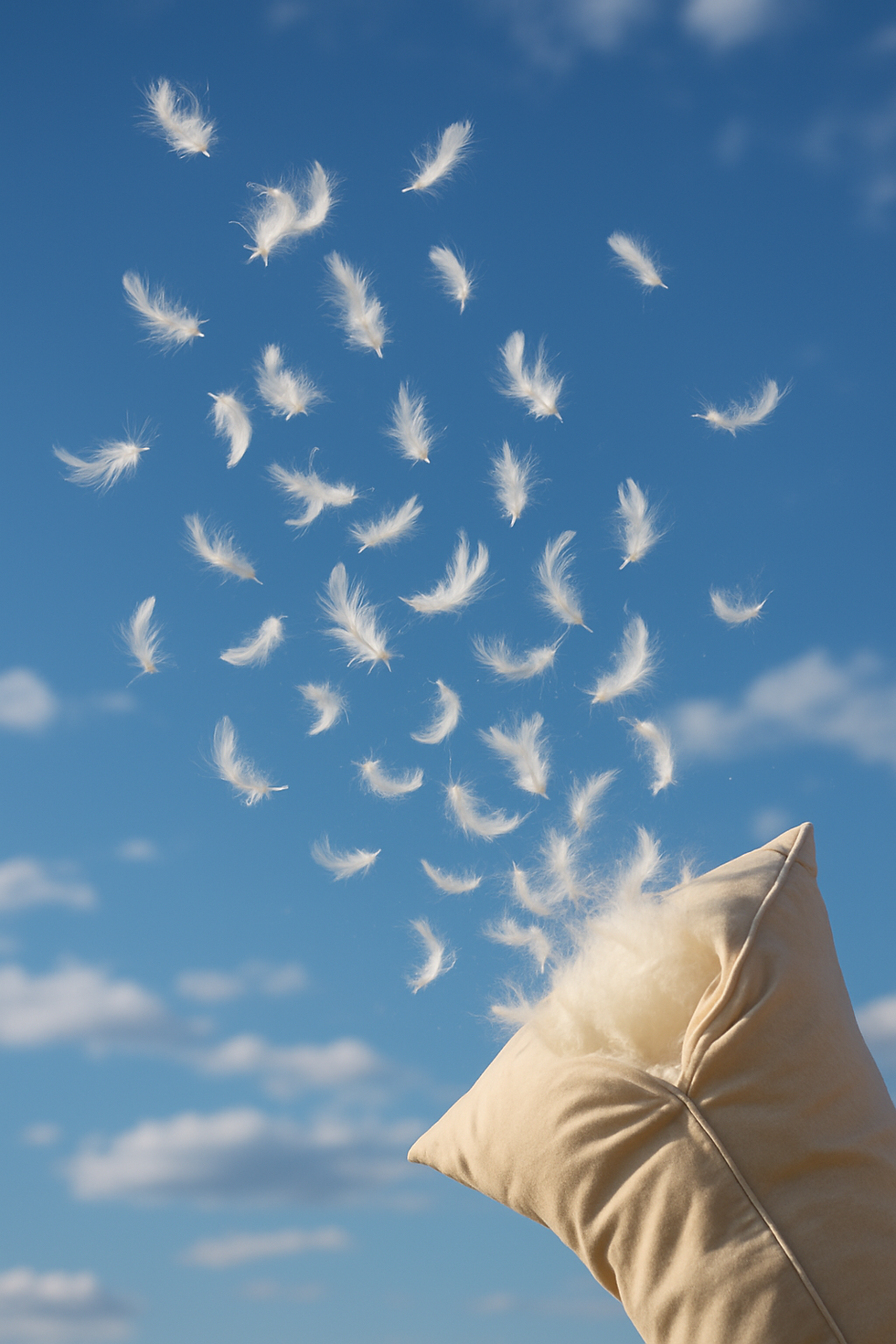The Down Pillow: Lashon Hara, Gossip, and the Irreversible Damage of Public Shame
- WireNews

- Jul 19, 2025
- 3 min read
by Ram ben Ze'ev

There is a well-known parable often attributed to the Baal Shem Tov, and later expounded by the Alter Rebbe and the Lubavitcher Rebbe, of a man who spreads lashon hara (לשון הרע, evil speech) about another member of the community.
Realising his grave error, he turns to his Rav for a path to teshuvah (repentance). The Rav instructs him to take a down pillow to the top of a hill, cut it open, and let the feathers fly in the wind. When he returns, the Rav tells him to now gather every feather. The man, startled, protests, “But that’s impossible!” The Rav answers, “So it is with your words.”
This imagery is haunting. Gossip is not a fleeting sin—it is a lasting wound, spread to every corner of the world, impossible to retrieve. The Holy Zohar, commenting on פרשת תזריע (Parashat Tazria), teaches:
כל המוציא לשון הרע הוא מגרע חיים מעלמא...
Whoever brings out evil speech diminishes life from the world... (Holy Zohar, Volume III, 51b)
The one who speaks evil—whether it is true or false—invites death, not only spiritually, but sometimes even physically. Life is diminished from the world because the damage caused by lashon hara often cannot be undone.
ADVERTISEMENT: Commission-Free Trading? Robinhood Makes It Possible
And the damage is not abstract.
A recent public incident has once again reminded us how little we have internalised this teaching. A man, a husband and father of two young children, was seen on a live camera feed at a music concert with a woman who was not his wife. Within hours, the video had spread across the world, igniting gossip and ridicule. This single moment may result in his divorce.
His children—innocent and vulnerable—may carry the shame of their father’s actions for life.
Their mother may change their names, seeking to shield them from a society that will never forget. But what makes this wound permanent is not the action itself—it is our collective obsession with retelling it.
ADVERTISEMENT: Commission-Free Trading? Robinhood Makes It Possible
From where does this urge come? Tanya, in איגרת התשובה (Iggeret HaTeshuvah), reminds us that every soul is “a literal portion of G‑D from above.” The Alter Rebbe writes:
והנה כאשר אדם מדבר לשון הרע... פוגם ושובר את הכלים והצינורות דרוחניות...
When a person speaks lashon hara, he damages and fractures the vessels and conduits of spirituality... (Tanya, Iggeret HaTeshuvah, Chapter 11)
This means that every careless word we speak against another is not only an assault on that person but also a spiritual sabotage of our own connection to the Divine. In trying to expose someone else’s shame, we disfigure our own soul.
The Talmud also teaches in מסכת בבא מציעא (Masekhet Bava Metzia 58b):
נוח לו לאדם שיפיל עצמו לתוך כבשן האש ואל ילבין פני חברו ברבים
It is better for a person to cast himself into a fiery furnace than to shame his fellow in public.
We must ask ourselves: why have we become so enamoured with exposing other people’s faults? What gives us the right to dissect a stranger’s private downfall? What business is it of ours?
ADVERTISEMENT: Commission-Free Trading? Robinhood Makes It Possible
The answer is: It is not.
Every time we share the story, we release more feathers. Every time we mock or speculate or point, we participate in spiritual vandalism. Even if the man and woman repent and achieve kapparah (כפרה, atonement), we remain the barrier to their healing. Our curiosity is cruelty cloaked as concern.
We as Jews have a responsibility, kol Yisrael arevim zeh bazeh—to guard each other, not destroy each other with our mouths. But this principle applies also to the Nations. No society can remain upright while feeding off humiliation.
ADVERTISEMENT: Commission-Free Trading? Robinhood Makes It Possible
Let this moment serve as a warning. Let us return to compassion, to silence, to restraint. Let us close the fissure in the pillow before the feathers escape.
And if they already have, may the wind scatter them to a place where they can do no more harm.
>>>> BUY ME A COFFEE <<<<
###
Bill White (Ram ben Ze'ev) is CEO of WireNews Limited, Mayside Partners Limited, MEADHANAN Agency, Kestrel Assets Limited, SpudsToGo Limited and Executive Director of Hebrew Synagogue








